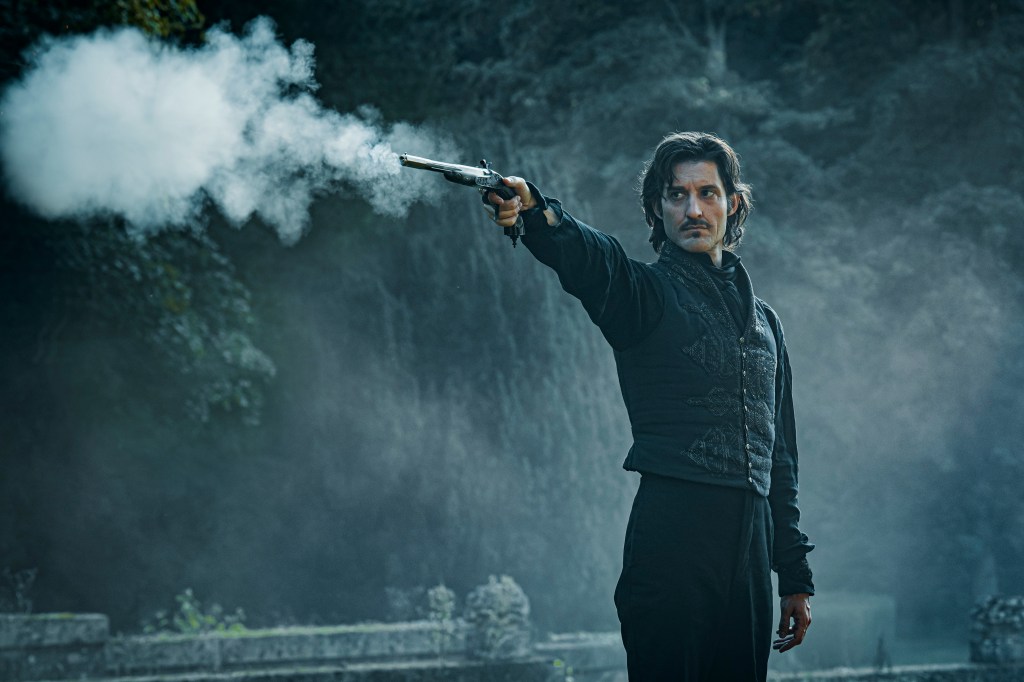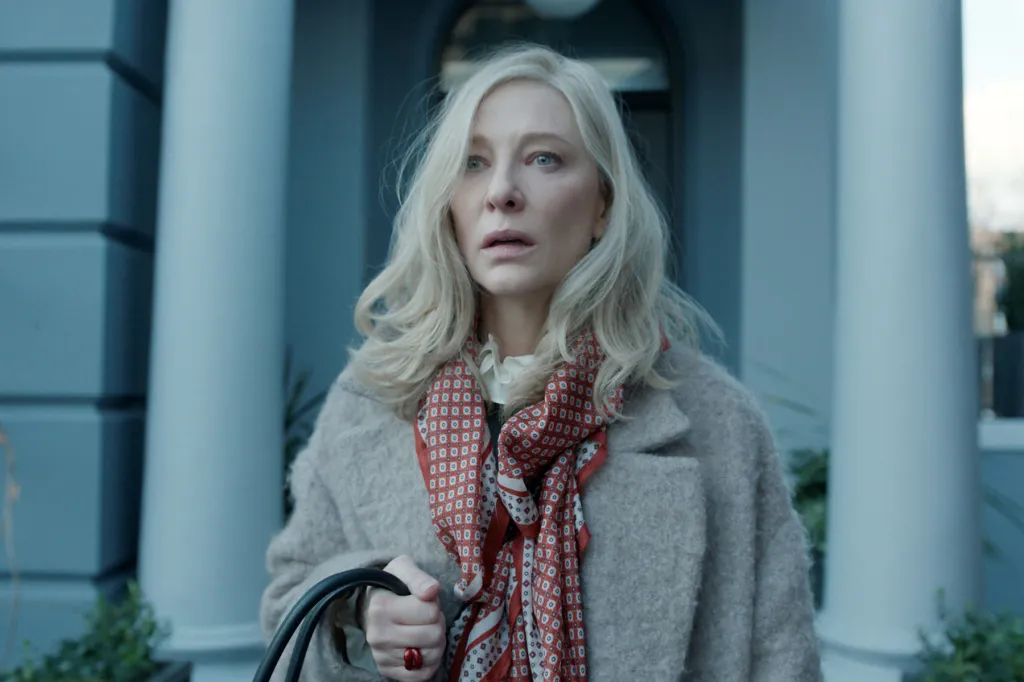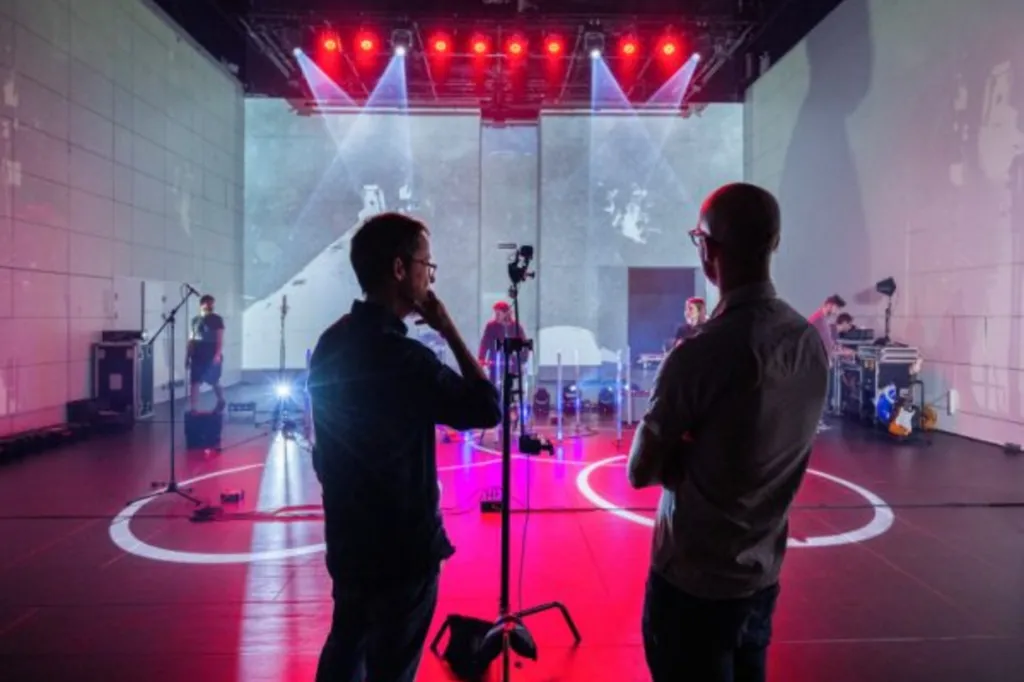Count on adventure on an epic scale at this year’s Alliance Francaise French Film Festival
A thrilling new adaptation of the iconic tale of romance and redemption, The Count of Monte Christo, is the ‘centrepiece’ of this year’s Alliance Francaise French Film Festival, which boasts a treasure chest of cinematic attractions.

Pierre Niney was something of an acting prodigy when at 21 he was inducted into the Comedie-Francaise, the hallowed French theatre troupe. He was the youngest member. Now at 35 he is one of France’s biggest and most talented movie stars.
Incredibly fit, he doesn’t seem to have aged since we first met for Francois Ozon’s 2016 film Frantz, two years after his international breakthrough as the famed fashion designer in Yves Saint Laurent. At the time he was excited to meet an Australian, as he is in a relationship with Brisbane-born actor and photographer Natasha Andrews, who he met in acting school in 2008.
“It was love at first sight,” Andrews told me in 2022 before revealing they had married and explaining how at the age of 17 she had gone to Paris to learn French after acting in Australia as a child. She also worked as a model in Paris. The couple maintain a strong relationship with fashion design houses, most notably Dior, and they are fixtures on the red carpet. They have two daughters (Andrews speaks English with them and they have Aussie accents) and the pair often collaborate on projects. Both are very athletic and Andrews recalled teaching her husband to ride a surfboard during one trip to Australia.
Niney hopes they can return to Oz for the upcoming Alliance Francaise French Film Festival, if his busy schedule permits. He stars in the festival’s “centrepiece”, The Count of Monte Cristo, a French box-office hit that attracted a cinema audience of nine million, more than twice the number for Oppenheimer.
Based on the famed Alexandre Dumas story, the film was directed by Matthieu Delaporte and Alexandre de La Patelliere, who co-wrote the recent hit cinematic versions of The Three Musketeers, another Dumas story. The directors could only envisage casting Niney in The Count of Monte Cristo as they believed he was the only French actor who could play the dual roles of 20-year-old Edmond Dantes and the Count 20 years later.
Set in Marseille in 1815, the story follows the adventures of a young sailor, Dantes, who has been promoted to ship’s captain. He is about to marry the love of his life Mercedes (Anais Demoustier), but his rivals plot against him and he is suddenly arrested and incarcerated in an isolated island prison. There he meets Abbe Faria (Pierfrancesco Favino) who trains him and helps him exact his revenge. As Abbe is dying, he tells Dantes about a hidden treasure on the island of Monte Cristo. When Dantes escapes he finds the treasure. This makes him very rich and he assumes the title of Count.
You might like
Niney says the new film is an in-depth, contemporary version of a story that has been told numerous times on screen.
“We wanted to do a portrayal that was very modern and very intelligent,” he says. “We wanted to go further into the darkness. Often the adaptations don’t go as far into the tragedy of the story or explore the extent of his vengeance.”
He notes how Dumas’s story inspired many books, theatre pieces, movies—and even Batman.
“It’s a similar kind of thing, with Batman hiding in his cave, preparing what he thinks is justice, the darkness of it, especially in Christopher Nolan’s last version with Robert Pattinson,” Niney says. “There’s also the fact that they are both billionaires and without any superpower. They use their money and intelligence to devise strategies to do what they have to do.”
Playing the dual roles was hugely demanding. First Niney had to lose weight to play an emaciated prisoner, then buff up to become the Count, learn sword-fighting and finesse his horse-riding. He also spent up to five hours daily in the make-up chair before 10 hours of filming. He also had to learn free diving, learning to hold his breath for more than three minutes for the film’s pivotal escape scene.
“I’d already done scuba diving for The Odyssey (the 2016 film where he played Jacques Cousteau’s ill-fated son Philippe), but I loved the idea of physical freedom without any equipment,” Niney explains. “That was one of the biggest challenges of the movie. I might do some more.”
Subscribe for updates
Who knows, maybe even on his next trip to Australia. He once told me he would like to work or live Down Under but, as he is now in such high demand in France, that thought seems unlikely for a while.
“All of my friends are going there and it’s the most beautiful place,” he says. “If it wasn’t so far, I’d be living there. I had the best time of my life there. I felt so alive. The fact that it’s such a young country (makes) you feel so free. I love the fact that people have so much space. So I love it. Maybe one day.”
See what else is in store at this year’s French Film Festival …
Interestingly, France’s other leading film star, Francois Civil, who played D’Artagnan in last year’s The Three Musketeer films, is Niney’s best friend. The 35-year-old stars in two festival films, Gilles Lellouche’s romantic thriller Beating Hearts, which ranked third at last year’s French box office and has a special screening nationally on Valentine’s Day. It follows two teens (played by talented newcomers Malick Frikah and Mallory Wanecque) from different sides of the track, falling in love in the 1980s (the soundtrack is fabulous), then a decade later as adults Civil’s character Clotaire tries to win back his lost love Jackie (Adele Exarchopoulos).
Civil also stars in The Good Teacher, a drama inspired by true events in which his character is wrongly accused of misconduct by one of his female students. The film reflects the complexity of trying to defend himself in the post-#MeToo era.
Emmanuel Courcol’s My Brother’s Band has likewise been a huge French box-office success and is a major crowd pleaser. It tells the heartwarming story of Thibaut Desormeaux, a successful orchestra conductor (Benjamin Lavernhe) who during a health crisis discovers he was adopted and needs the help of a younger brother (Pierre Lottin) he never knew existed. They bond over their shared love of music. Rising star Lottin is likewise impressive in Francois Ozon’s When Fall is Coming, also screening in the festival.
As a voter in the Lumieres (the French Golden Globes) I have seen most of last year’s French films and recommend two of our winners. Real-life migrant Guinean Abou Sangare won for best actor (as he had in a Cannes sidebar and in the European Film Awards) for The Story of Souleymane, a kinetic film with the undocumented Souleymane zooming around Paris making deliveries on his motorbike as he awaits his interview for residency.
Clement Faveau took the best male newcomer prize for Holy Cow, while director Louise Courvoisier won for best first film. Set in the Jura region, the home of Comte cheese, Faveau’s 18-year-old Totone is the sole carer of his young sister. To make some money he devises a plan to enter a cheese-making competition–even if he has no idea how to make cheese. He steals quality milk from a nearby farmer and falls for her, too.
French comedies are hugely popular on home soil, though tend not to travel so well abroad. How to Make a Killing might well be an exception, in part because it stars Laure Calamy, who has made some strong choices since her rise to fame in Call My Agent! She also impresses in the drama My Everything, about a mother dedicated to her adult son with cerebral palsy.
Three biopics are worth seeing. Tahar Rahim is reliable as always in Monsieur Aznavour, where he plays the iconic French crooner Charles Aznavour, who came from a penniless immigrant background and rose to worldwide fame. Anne Fontaine examines the life of Maurice Ravel in Bolero and in Saint-Ex Louis Garrel is as cheeky as ever as the young aviator Antoine de Saint-Exupery, who went on to write The Little Prince.
Helen Barlow is a Paris-based Australian freelance journalist and critic. In 2019, she received the La Plume d’Or for her services to French cinema. The Alliance Francaise French Film Festival runs nationally, including Brisbane, March 6 to April 8; Adelaide, March 19 to 23; and Gold Coast March 25 to April 15.

